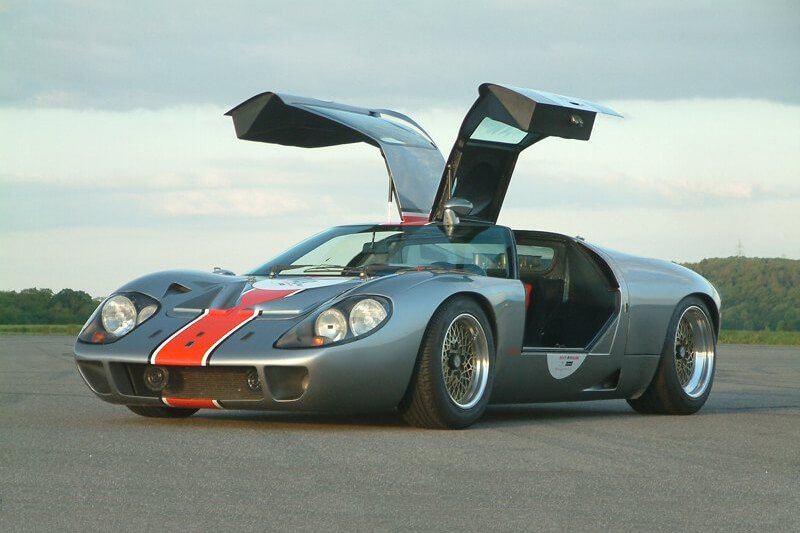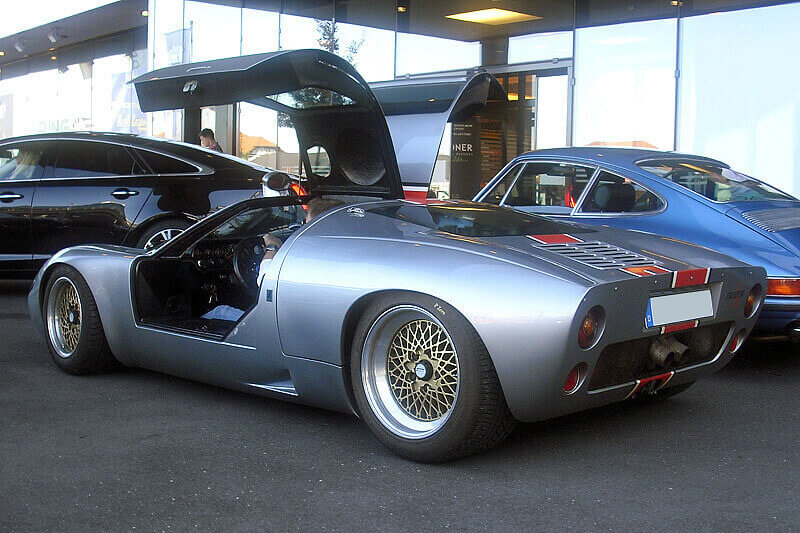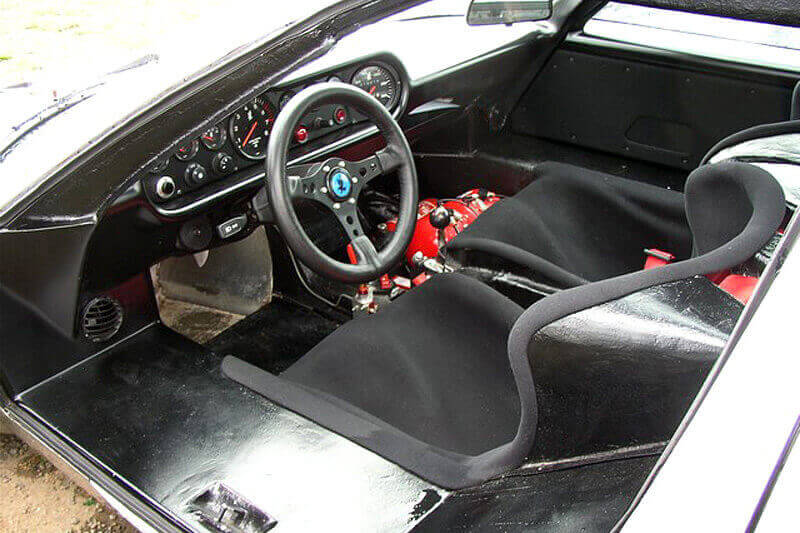Isdera Erator GTE
Description
The Isdera Erator GTE is a one-of-a-kind two-seater sports car with gullwing doors that is the first car designed by Eberhard Schulz, the founder of Isdera GmbH, at the age of 28, which he assembled in the laundry room of his parents' house.
Participating in the development of the Mercedes-Benz C-111 prototype and not getting a decision from the management to start its production, Eberhard Schultz set about creating his own car – the Erator GT. The car was created under the impression of the famous Ford GT40 racing prototypes, but apart from some external resemblance, they had nothing in common.
Schultz applied in the design of Erator ideas that later became the hallmark of his company: the absence of rear-view mirrors and the use of a complex periscope-type device, as well as gull-wing doors. When developing his car, Schulz used proven components and assemblies from the Porsche and Mercedes brands. The design is based on a strong tubular steel space frame, lightweight fiberglass outer body panels and double wishbone independent suspension front and rear.
Initially, a carbureted 1.6-liter Volkswagen 1600 L engine with a power of 54 hp was hidden in the engine compartment, which allowed a car weighing 780 kg to accelerate to 160 kph. Within a year, the modest Volkswagen engine was replaced with a more efficient 2.3-liter V-6 from the Ford Taunus with 108 hp. The maximum speed of the car was 200 kph.
In 1969, the car, which remained in a single copy, was subjected to the last modernization. The Ford V6 engine was replaced by a Mercedes-Benz 5-liter V8 with 420 hp. The engine had a Bosch mechanical fuel injection system, which is why the letter E appeared in the model index (from the German Einspritzanlage – fuel injection). Suspension and brake assemblies were strengthened to match. With such a powerful engine, a light car weighing 960 kg was able to overcome the speed barrier of 300 kph, eventually developing 315 kph, which surpassed the sports cars of that time – the Ford GT40 and Lamborghini Miura. Acceleration from 0 to 100 kph took only 4 seconds.
Links
Specification
| Bodywork | |
|---|---|
| Years of production |
1968-1969
|
| Produced (pcs.) |
1
|
| Body type |
купе
|
| Number of doors |
2
|
| Number of places |
2
|
| Engine | |
|---|---|
| Engine type |
бензиновый
|
| Engine location |
центральное, продольное
|
| Engine model |
Mercedes-Benz M117
|
| Cylinders |
V8
|
| Capacity (cc) |
5000
|
| Power output (hp / kW /) |
420 /
309 /
|
| at rpm |
6200
|
| Torque (N·m) |
580
|
| Fuel system |
впрыск
|
| Fuel system model |
Bosch
|
| Turbocharger |
—
|
| Specific | |
|---|---|
| Specific output (hp/litre) |
84,00
|
| Specific output (hp/tonne) |
437,50
|
| Specific output (kg/hp) |
2,29
|
| Specific torque (N·m/litre) |
116,00
|
| Transmission | |
|---|---|
| Driven wheels |
задний
|
| Gearbox model |
ZF
|
| Gearbox |
механическая
|
| Number of speeds |
5
|
| Suspension | |
|---|---|
| Front suspension |
независимая на двойных поперечных рычагах
|
| Rear suspension |
независимая на двойных поперечных рычагах
|
| Elastic elements in front |
пружины
|
| Elastic elements in rear |
пружины
|
| Tyres front |
225/50 R15
|
| Tyres rear |
285/45 R15
|
| Steering | |
|---|---|
| Power steering |
—
|
| Brakes specs | |
|---|---|
| Anti-lock braking system |
—
|
| Dimensions and weight | |
|---|---|
| Body |
стальной трубчатый каркас
|
| Body material |
стекловолокно
|
| Length (mm) |
4030
|
| Width (mm) |
1770
|
| Height (mm) |
960
|
| Drag coefficien |
0,322
|
| Curb weight (kg) |
960
|
| Performance specs | |
|---|---|
| Fuel type |
Аи-95
|
| Dynamic specs | |
|---|---|
| Acceleration 0-100 kph (s) |
4,0
|
| Acceleration 0-60 mph (s) |
3,8
|
|---|
| Top speed (kph) |
315
|
|---|---|
| Top speed (mph) |
196
|
| Tags: | |
|---|---|
| Type: | |
| Brand: | |
| Country: |



